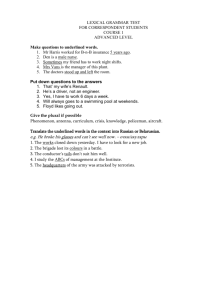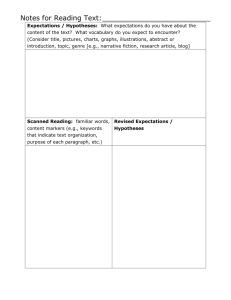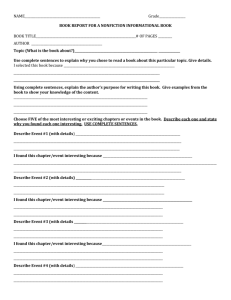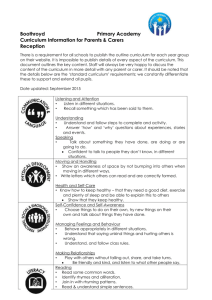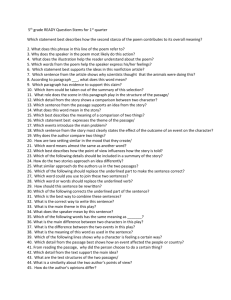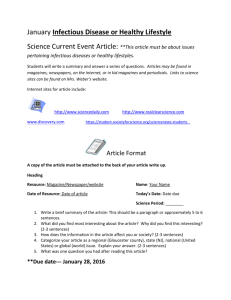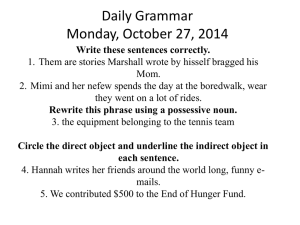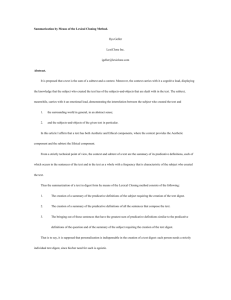1- write - SchoolRack
advertisement
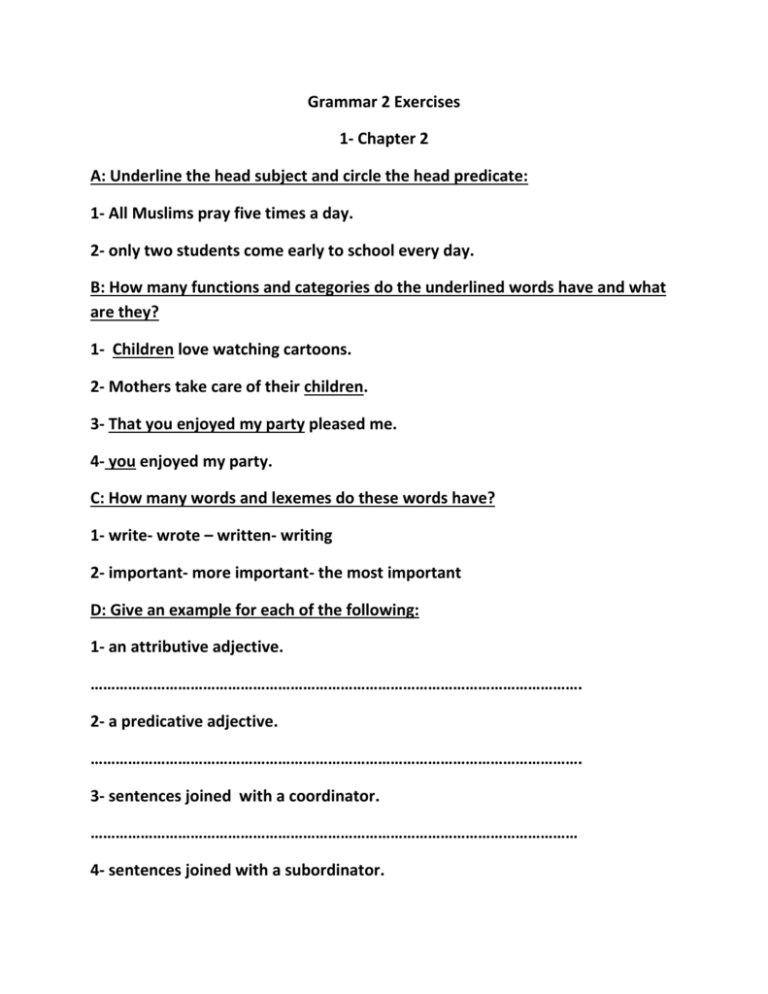
Grammar 2 Exercises 1- Chapter 2 A: Underline the head subject and circle the head predicate: 1- All Muslims pray five times a day. 2- only two students come early to school every day. B: How many functions and categories do the underlined words have and what are they? 1- Children love watching cartoons. 2- Mothers take care of their children. 3- That you enjoyed my party pleased me. 4- you enjoyed my party. C: How many words and lexemes do these words have? 1- write- wrote – written- writing 2- important- more important- the most important D: Give an example for each of the following: 1- an attributive adjective. ………………………………………………………………………………………………………. 2- a predicative adjective. ………………………………………………………………………………………………………. 3- sentences joined with a coordinator. ……………………………………………………………………………………………………… 4- sentences joined with a subordinator. F: underline the non-prototypical words : 1- happy- sad- disappointed 2- man- child- girl G: Decide whether the sentences below have a predicative complements or direct objects: 1- I am an English teacher. 2- He visits his friends weekly. “Chapter 3” A- Determine whether the underlined verbs below are plain forms or plain present 6. tense fonns. Again, present the evidence on which you base your decision. i- The twins, he says, seem quite distraught. ii -It would be best not to my. Anything about it. iii- He thinks they didn 't like him. iv -They wouldn 't help me change the tyre. v -Let 's gQ to the movies. VI -We have written to the editor. vii -They appreciate what you 're doing for them. viii- Tell me what you want. Ix- I doubt whether you really know her B- State whether the following sentences are true or false and why? 1- closes the door. 2- you shoulds speak English. 3- I sleptn’t well last night. 4- take you the exam? 5- Do you must travel tonight? 6- we are canning . 7- we ought to go. C – Give examples of : lexical HAVE : auxiliary DARE: “Chapter 4” 1 . Use the licensing criterion to determine whether the ten underlined expressions in the examples below are complements or adjuncts. In the case of complements, cite three verbs that license such a complement, and three that do not. (There are ten expressions in all ; for reference, they're labelled with small roman numeral subscripts. ) They suddenly ran to the gate. I wonder if he ' II be safe all the time. I'm keeping the dog, whatever you say. You 'd better put the cat out now. It's always been easy for you hasn 't it? They swam in the sea even though it was raining 2. In the following examples, show how either case or agreement can be used to provide evidence that the underlined expression is subject. i -This letter embarrassed the government. ii -Sue will lend you her car. iii -Everything will be OK. iv- it must be the twins he 's referring to. v -One of the twins took the car. 3. In each of the following pairs pick out the one in which the underlined expression is object. Give syntactic reasons for your answer. a. We all enjoyed that summer. b. We all worked that summer. ii a. She fasted a very long time. b. She wasted a very long time. iii a. He seemed an amazingly bad film-maker. b. He screened an amazingly bad film. 4- expressions below are objects or predicative complements. Give syntactic evidence in support of your answers. i -They arrested a member of the party. ii -She remained a member of the party. iii- It looks a bargain to me. iv- He proposed a bargain to me. v -They continued the investigation. 5- Explain the ambiguities of the following two sentences (they can each be understood either as complex-transitive or as ditransitive ): i- I found her a good lawyer. ii - He called me a nurse.
